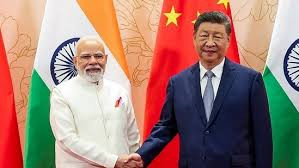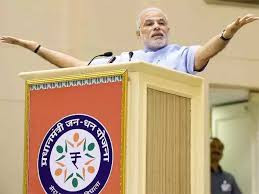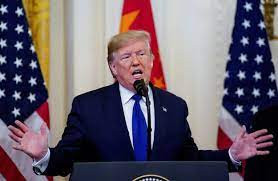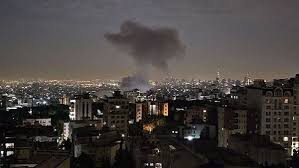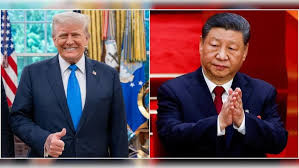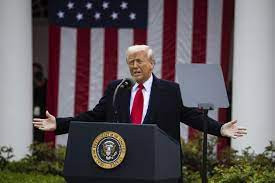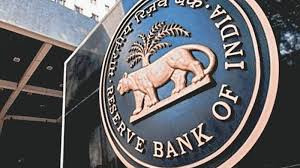Operation Sindoor: Global Support and Strategic Silence as India Strikes Back Against Terrorism

IIE DIGITAL DESK : The devastating terror attack in Jammu and Kashmir’s Pahalgam that killed 26 Indian tourists in April 2025, India launched “Operation Sindoor,” a precision military operation targeting nine terrorist camps across Pakistan and Pakistan-occupied Kashmir (PoK) on May 6. The operation, reportedly carried out with a combination of air and missile strikes, was aimed at eliminating high-value targets from terrorist outfits such as Jaish-e-Mohammed and Lashkar-e-Taiba—groups long accused of operating with impunity under Pakistani protection.
India has since confirmed the death of several key figures, most notably Abdul Rauf Azhar, the brother of Jaish-e-Mohammed founder Masood Azhar. Officials claim the operation was conducted after high-level intelligence confirmed the locations of active training camps and weapons stockpiles that posed an imminent threat.
The global response to Operation Sindoor has been mixed—ranging from vocal support to diplomatic caution. Western powers like the United States, the United Kingdom, France, and Israel have backed India’s right to defend itself. In a joint statement, these countries expressed solidarity with India in the fight against terrorism and condemned the April 22 attack, referring to it as “an attack not just on India, but on the collective values of humanity.”
The U.S. State Department acknowledged India's “measured and targeted” response, calling for Pakistan to ensure its territory is not used as a safe haven for terrorist networks. Similarly, the French foreign ministry described the operation as “necessary” and urged Islamabad to act decisively against terrorism within its borders.
Israel’s foreign affairs spokesperson, while expressing sympathy for the victims of the Pahalgam attack, went a step further by suggesting that nations like India have “every right to act unilaterally when their national security is under direct threat.” Britain, traditionally cautious in South Asian geopolitics, also took a strong position, stating that “Pakistan must rein in extremist groups that compromise regional peace.”
However, not all voices echoed this support. China, a close ally of Pakistan and a key stakeholder in the region, called the strikes “regrettable” and urged both nations to de-escalate. Beijing maintained that territorial sovereignty must be respected and advocated for immediate dialogue. Russia, too, offered a tempered response, recognizing India’s security concerns but warning of the risks associated with prolonged military engagement.
The United Nations, through Secretary-General António Guterres, appealed for calm and diplomacy. “Both India and Pakistan are nuclear-armed. The international community cannot afford a military confrontation in South Asia,” he said in a statement issued from New York. The UN has also indicated it is ready to mediate if invited by both parties—an unlikely proposition given India's longstanding opposition to third-party mediation in its bilateral disputes with Pakistan.
Pakistan, unsurprisingly, reacted with fury. Terming Operation Sindoor “an unprovoked act of aggression,” Islamabad vowed to retaliate. Prime Minister Shehbaz Sharif described the strikes as a “cowardly attack on civilian territory” and announced that Pakistan would exercise “its right to self-defense in equal measure.” Within hours of India’s strikes, Pakistani military officials claimed to have launched retaliatory attacks near the Line of Control (LoC), heightening fears of a wider conflict.
Cross-border shelling has already begun in sectors across Jammu, Rajouri, and Poonch. Civilian evacuations are underway in border villages, and several states, including Punjab and Rajasthan, have placed critical infrastructure under high alert. Rail and flight services to several northern sectors were temporarily suspended, and there are reports of blackout drills being conducted in towns near the border.
Domestically, the Indian government has received strong support from the public and opposition alike. While political leaders across party lines have expressed grief over the Pahalgam tragedy, there is a near-unanimous consensus backing the armed forces and the government’s right to respond decisively. Public opinion, as seen on social media and through various civil society responses, appears largely in favour of Operation Sindoor, with many calling it a long-overdue move.
State governments have stepped up preparedness in the wake of escalating tensions. Schools and colleges in border districts have been shut as a precaution, and police forces have been asked to monitor social unrest or communal tensions that may be triggered by misinformation. Meanwhile, the stock market, though initially jittery, rebounded after Defence Ministry briefings assured that India was not seeking a prolonged military conflict.
Operation Sindoor has reignited international conversations around cross-border terrorism, nuclear diplomacy, and the need for reform in global counterterrorism frameworks. While India has received strong backing from key allies, the situation remains volatile. The possibility of further escalation cannot be ruled out unless international diplomatic channels succeed in calming both sides.
Strategists note that the operation has effectively served both as a tactical strike against terror infrastructure and a strategic message to Pakistan and its allies: India will not hesitate to act when its national interests are at stake. However, the larger question now is whether this will mark the beginning of a new phase in Indo-Pak relations—or yet another chapter in a cycle of conflict, condemnation, and uneasy ceasefires.
As tensions continue to simmer, the world watches closely. The next few days will be critical—not only for regional peace but for the international community's ability to stand unified against terrorism while preventing a dangerous escalation between two nuclear powers.
You might also like!


